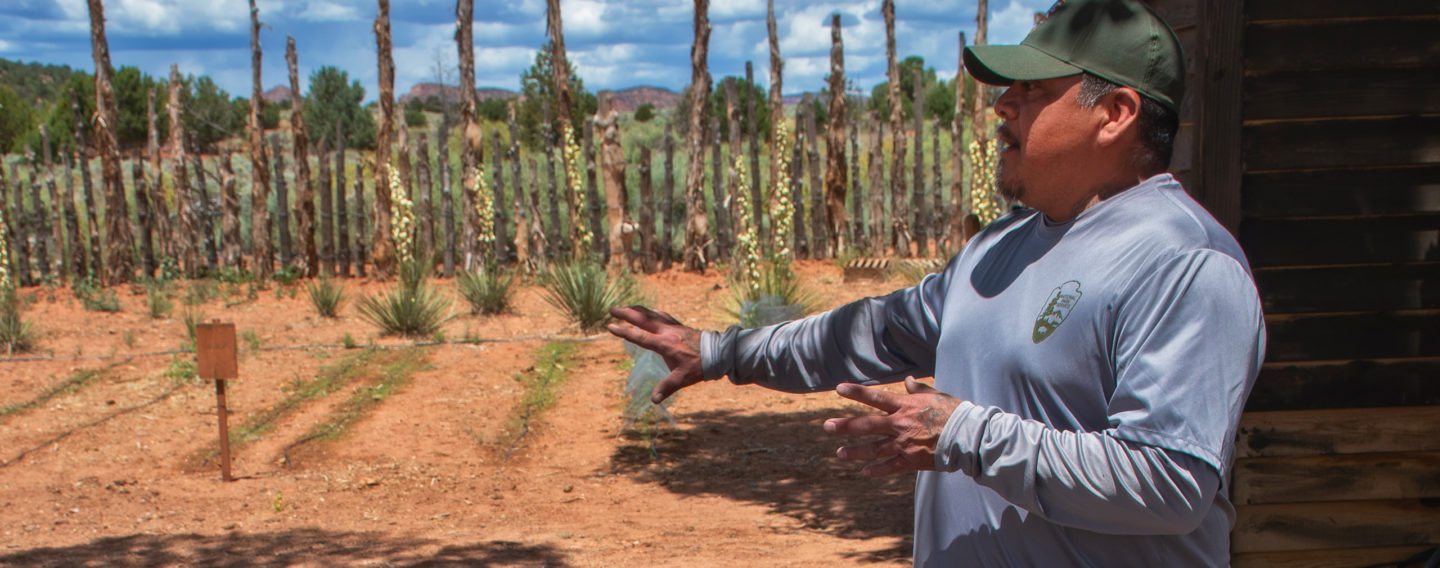Seeding the Future: Responsibility Relocating Native Garden
Project Need: $46,700
Water is a precious resource in the desert, and at Pipe Spring National Monument, water has had a profound impact on the land’s story. This project seeks to transplant the Heritage Garden, currently nestled within the boundaries of Pipe Spring National Monument, to a location that leverages natural, gravity-fed water sources to promote sustainable agricultural practices. This relocation is not just a logistical move but another step towards revitalizing the traditional agriculture practices of the Southern Paiute and Utah pioneer cultures.
Project Lead Ranger Mark Abetz, Pipe Spring’s Program Manager for Interpretation and Education, speaks on the significance of the garden: “This garden grows gourds used by Paiute Elders for traditional songs and prayers. Produce grown at the garden is shared with the public and the surrounding tribal community.”
Beyond its cultural significance, the project addresses the urgent need for climate change resilience and environmental stewardship. By moving the garden closer to natural water sources, the monument is taking a proactive approach to adapting to the changing climate and ensuring the longevity of this living history exhibit.
Pipe Spring partners with the Kaibab Band of Paiute Indians to tackle the challenges posed by food deserts in the area, offering local gardening and water conservation workshops. Our work is a testament to collaborative stewardship’s power, weaving together the threads of cultural heritage, environmental sustainability, and community wellness.
The relocation and improvement of the Heritage Garden and Native Seed Nursery at Pipe Spring National Monument represents an opportunity to support a project that encapsulates the essence of historic preservation, environmental responsibility, and cultural inclusivity. As we look to the future, we look to you for your continued support.

